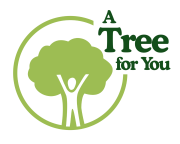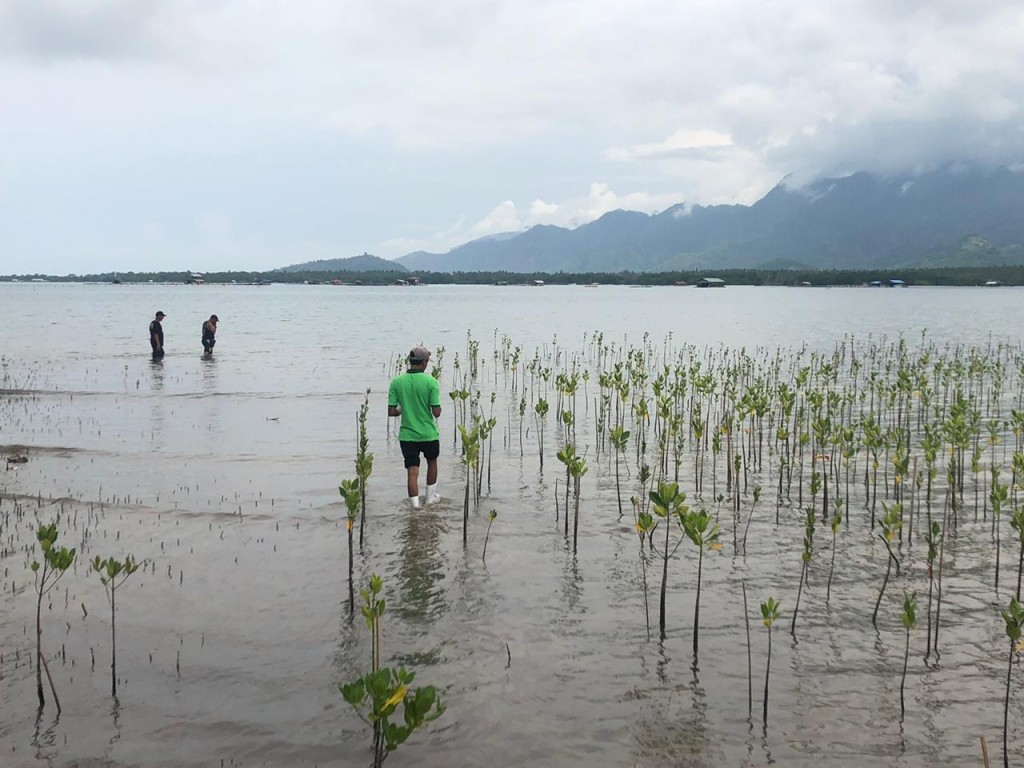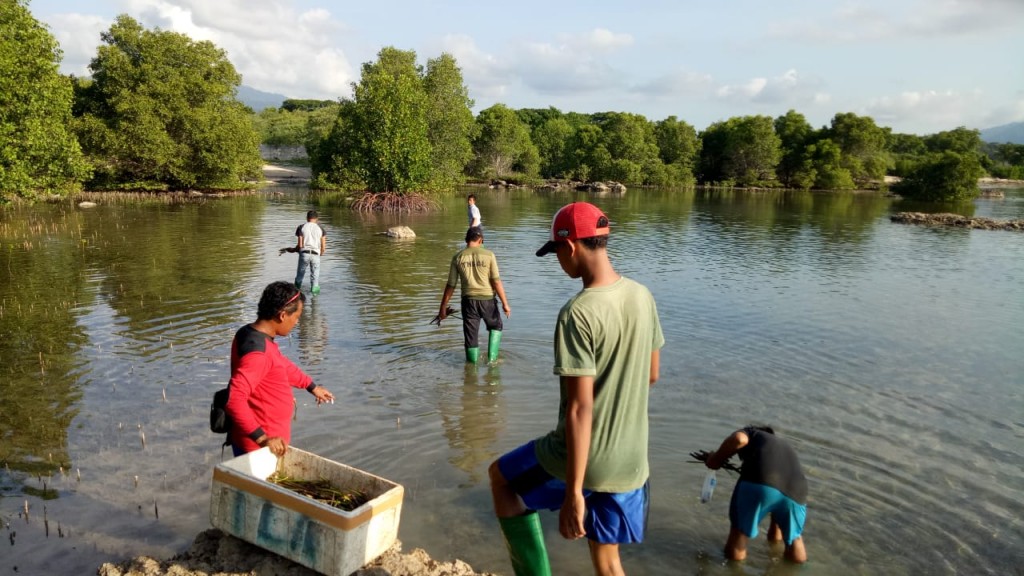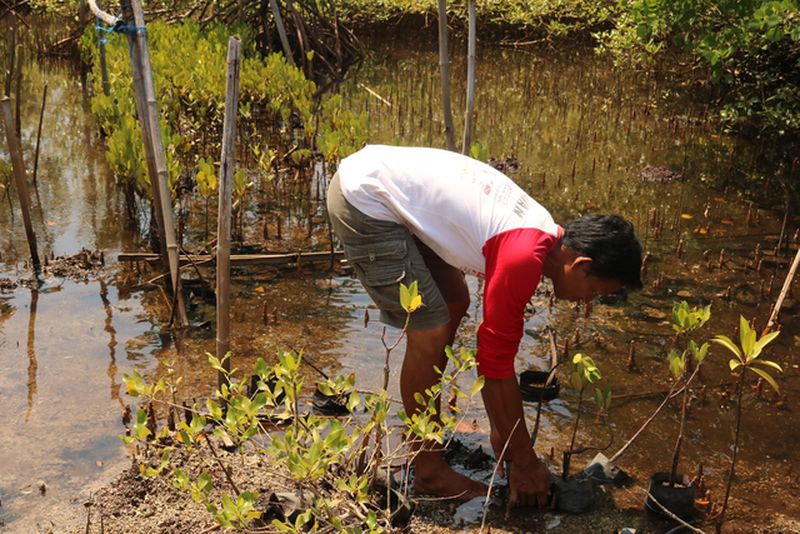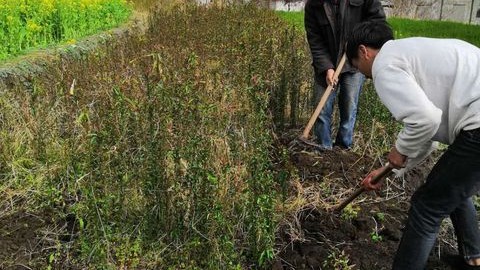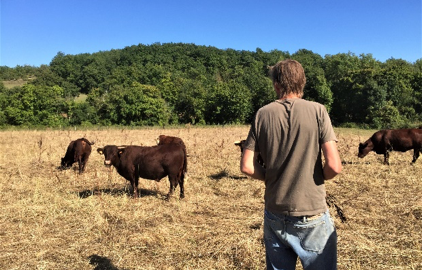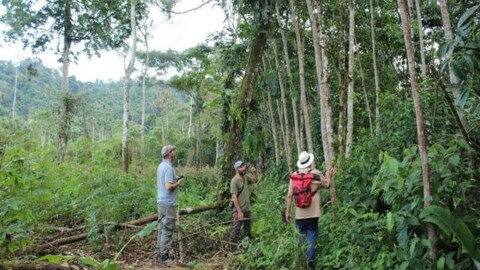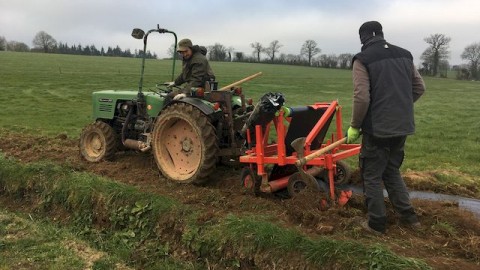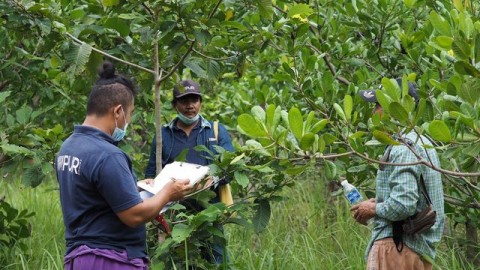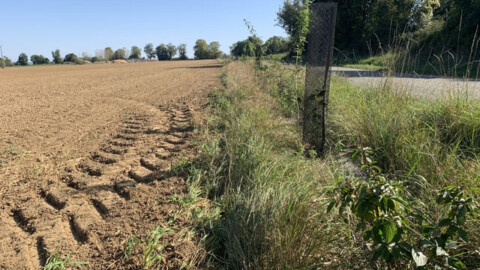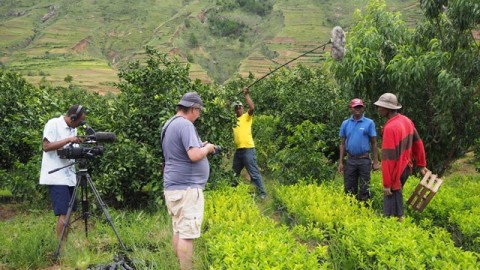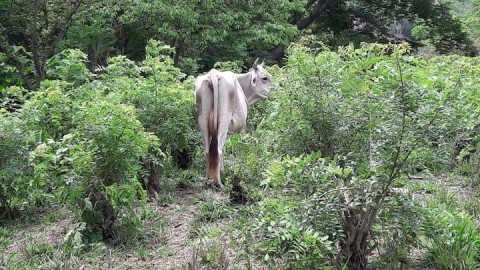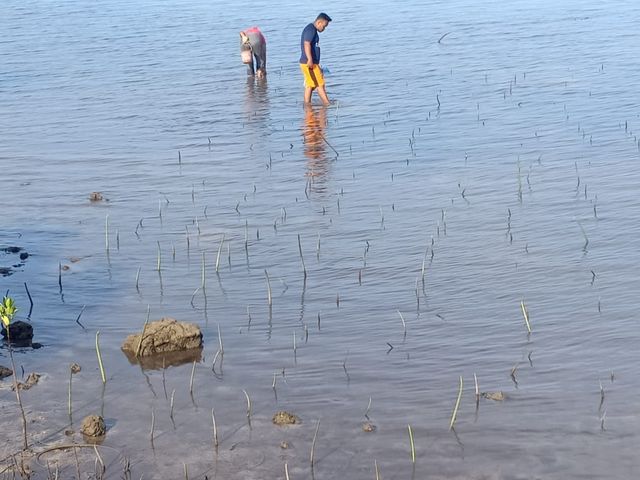
Pejarakan, Bali, April 2020
Thanks to your support, 5,000 mangroves are currently being planted in Pejarakan. Despite COVID-19 the planting campaign is almost finished.
The local team has planted a large variety of species such as small stilted mangrove (Rhizophora stylosa), loop-root mangrove (Rhizophora mucronate), yellow mangrove (Ceriops australis), Indian mangrove (Ceriops tagal) and oriental mangrove (Bruguiera gymnorrhiza).
The mangroves are closely monitored and regularly maintained to ensure the best possible growing conditions. Maintenance activities are carried out throughout the year and include cleaning out ocean waste from the planting area that might smother the seedlings.
In addition to risks such as parasites (crabs and snails) and plastic waste in the sea, the team faces the tough challenge of raising awareness among the surrounding coastal communities, who are currently unaware of the threats to the mangroves. The team is taking action to heighten awareness and increase the capacity of the communities to restore their coastal ecosystems.
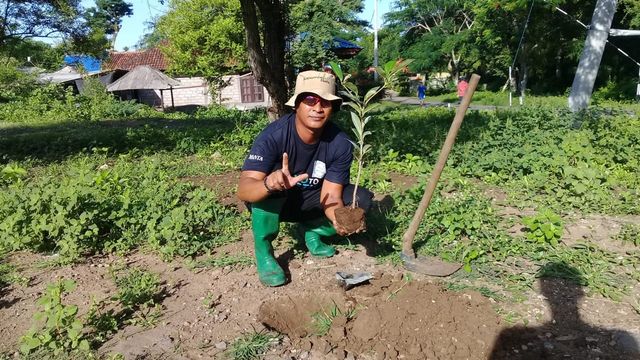
In Pejarakan, we are working with the community collective Nature Conservation Forum Putri Menjangan. Its Hindu and Muslim members have been working to restore mangroves in the village of Pejarakan since 2006.
Introducing Riri, chief coordinator of NCF Putri Menjangan.
Riri was born and grew up in Pejarakan. He worked in various hotels in Bali before following his passion and fully committing to environmental conservation. Having grown up in a fishing family, he has always been close to nature. This has led him to realise that “protecting ecosystems is the responsibility of all parties, including the community itself”. Riri and his friends at NCF have therefore committed to restoring Pejarkan’s degraded mangrove forests while raising awareness in their community to join their efforts.
Before starting the planting campaign, the NCF team collects seeds from existing mangrove forests. Seed collection follows the mangrove fruiting calendar. Depending on the species, Pejarakan’s mangroves produce fruit between September and March. Mangrove seedlings, commonly known as propagules, are collected then planted in selected restoration areas. Planting takes place throughout the year, but is mainly concentrated in two periods, i.e. between April to June and September to December, when conditions are most favourable and coastal waters calm.
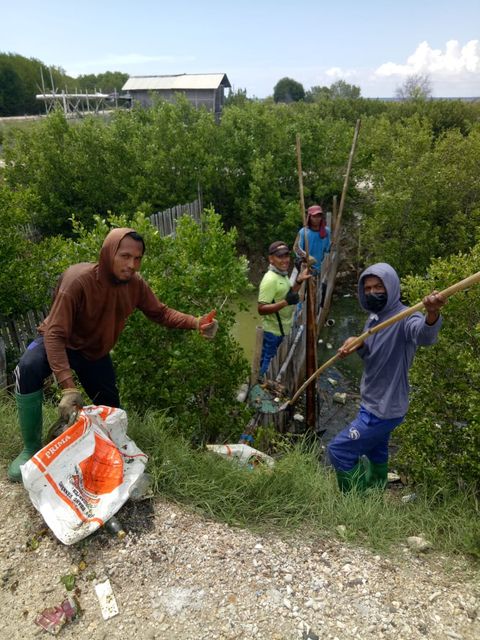
Riri and his team are proud of their achievements so far for the whole Perajakan project. The hours spent collecting and planting mangrove propagules are paying off: the mangroves are growing well.
Next steps: ongoing work to maintain, restore and protect the mangroves. Monitoring in 2021 will track the mangrove growth.
